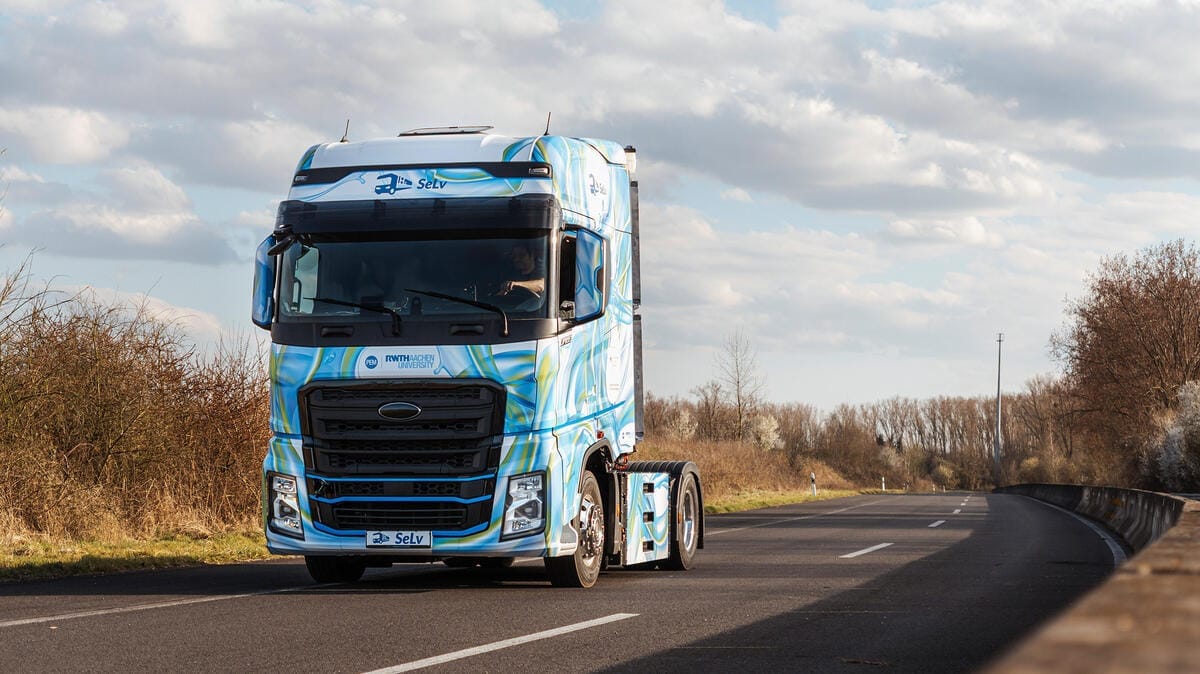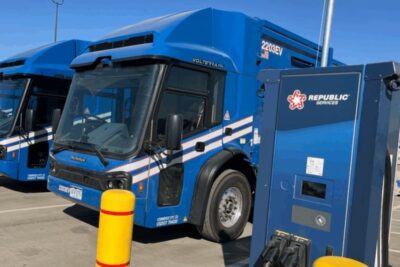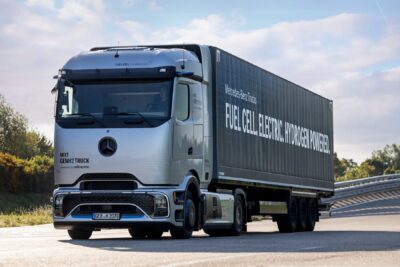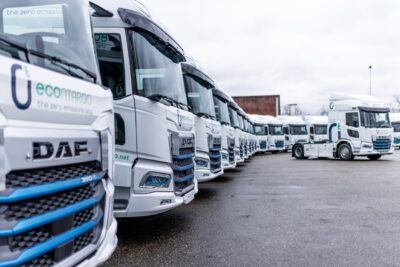RWTH Aachen University’s fuel cell truck receives road approval
Alongside the electrification of the passenger car fleet, the decarbonisation of heavy goods transport is one of the key levers that must be pulled to reduce CO2 emissions in Germany in the long term. Approximately 20 per cent of the greenhouse gases produced in this country are attributable to the traffic and transport sector, 35 per cent of which comes from trucks and vans.
While many manufacturers are fully committed to battery-electric drives in the truck sector, there are also some companies and research institutes still see great potential for fuel cells, especially for long-distance travel. These include the Chair of Production Engineering of E-Mobility Components (PEM) at RWTH Aachen University.
As part of the SeLV research project, which is funded by the Federal Ministry of Transport with 16.9 million euros, Germany’s second-largest technical university has been working on a modular powertrain for trucks since 2021. This can be individually configured depending on the intended use. The focus is on combining a fuel cell with an electric drive. The participants are not only interested in equipping new vehicles with this drive system in the future, but also in using it to retrofit existing commercial vehicle fleets.
Milestone achieved
The chair has now achieved a real milestone. A prototype has officially been approved for road use and will collect valuable data and insights under real-world conditions in the future. Those responsible believe this represents a major step forward: “The official approval for road service shows that innovative approaches can be brought from research prototypes to practical suitability and ultimately to series production in a short period of time,” said PEM Director Professor Achim Kampker.
But before testing on public roads begins, the vehicle will first celebrate its trade fair premiere at the NUFAM commercial vehicle trade fair in Karlsruhe. The truck will be on display at stand A519 from 25 to 28 September. The prototype will also serve as a transporter for other exhibits from RWTH Aachen University, which will provide information about battery technology, fuel cells and electric motors. The focus will be on the integration of these technologies into heavy commercial vehicles.
While there is now also a clear trend towards battery-electric drives in the commercial vehicle sector, those responsible in Aachen remain convinced of the great potential of fuel cells: “The high energy requirements of heavy-duty trucks make it possible to exploit the technological advantages of fuel cells – especially their long range and high payload capacity,” added Kampker.
This article was first published by Elias Holdenried for electrive’s German edition.





0 Comments